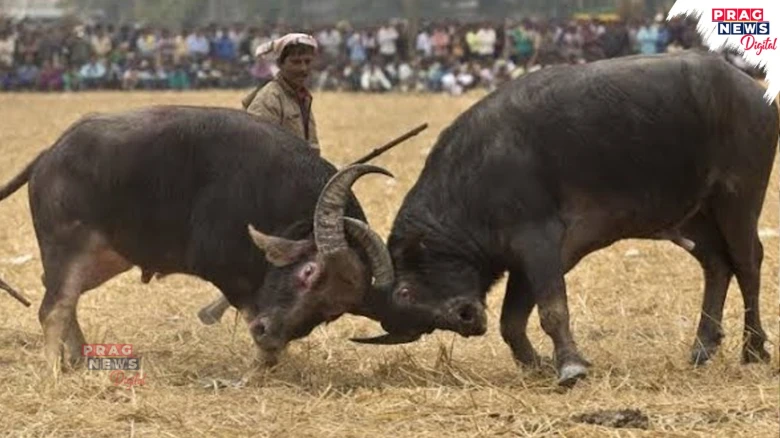Regional

PETA India submitted several examples of how fights are conducted illegally outside of the dates allowed by the SOP …
Digital Desk: Guwahati—Today, responding to petitions filed by People for the Ethical Treatment of Animals (PETA) India, the Gauhati High Court declared as null and void the Assam government SOP dated 27 December 2023 which had allowed buffalo and bulbul bird fights to be held during a specific period of the year—the month of January. The petitions were listed before Hon’ble Mr. Justice Devashis Baruah in the Gauhati High Court and detailed submissions were made by Mr. Diganta Das, Senior Advocate, in support of PETA India’s argument that the buffalo and Bulbul fights violate the Prevention of Cruelty to Animals Act 1960 and that the bulbul fights additionally violate the Wildlife Protection Act 1972, which were accepted by the court. The Gauhati High Court further held the SOP to be in violation of the judgment dated 7 May 2014 passed by the Hon'ble Supreme Court in Animal Welfare Board of India vs. A. Nagaraja. Evidence, PETA India submitted an investigation into these fights, which revealed that frightened and seriously injured buffaloes are made to fight through beatings and that starved and intoxicated bulbuls are made to fight for food. PETA India submitted several examples of how fights are conducted illegally outside of the dates allowed by the SOP as they argued that the allowance of fights at any point of the year is causing severe animal abuse.
An investigation into a buffalo fight held in Ahatguri in the Morigaon district of Assam on 16 January by PETA India revealed that to instigate buffaloes to fight, owners slapped, pushed, and shoved them; jabbed and struck them with wooden sticks; and pulled them by their nose-ropes to force them to approach one another.
When the fights were on, some owners and handlers jabbed the buffaloes with sticks and whacked them with bare hands to cause them further distress. The buffaloes locked horns and fought, sustaining bloody wounds to their necks, ears, faces, and foreheads – many had injuries all over their body. The fights lasted until one of the two buffaloes broke away and fled. An investigation carried out into a bulbul bird fight held in Hajo in Assam on 15 January revealed that red-vented bulbuls – who are protected under Schedule II of the Wild Life (Protection) Act, 1972 – were illegally captured and incited, against their natural instincts, to fight over food.
It is said that birds are caught days before the fight. Capturing protected wild birds is a form of hunting and is illegal. The birds are said to be drugged with marijuana and fed bananas, black pepper, cloves, and cinnamon among intoxicating herbs to provoke them. The birds are then starved for at least one night before the fight.
During the fight, a piece of banana is dangled in front of the hungry birds, inciting them to attack each other. Each fight lasted approximately five to 10 minutes, and handlers forced exhausted birds to continue fighting by repeatedly blowing air on them. PETA India's petition to the High Court pointed out that the buffalo and bulbul fights violate the Constitution of India; The Prevention of Cruelty to Animals Act, 1960; and judgments of the Hon'ble Supreme Court of India, including in Animal Welfare Board of India vs A Nagaraja.
PETA India also points out that by their very nature, these fights are cruel, and bring immeasurable pain and suffering to the animals who are coerced into participating, and run counter to the principles of ahimsa (non-violence) and compassion, which are an integral part of Indian culture and tradition. PETA India – whose motto reads, in part, that "animals are not ours to use for entertainment or abuse in any other way" – opposes speciesism, a human-supremacist worldview.
Leave A Comment